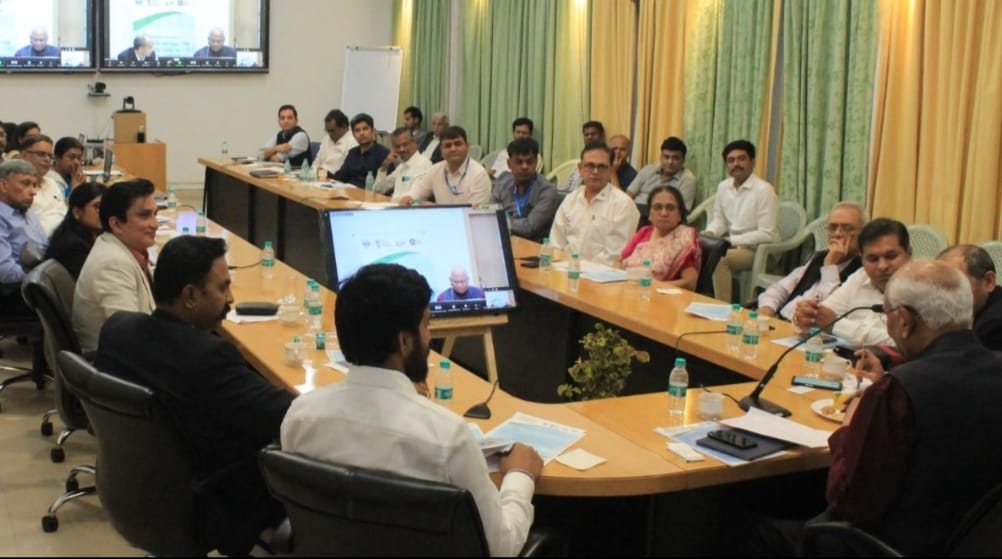Pune Kickstarts Maharashtra’s Design For Hydrogen Valley

Pune, 21st December 2022: Green hydrogen is considered an important energy source to be adopted globally for the effective mitigation of climate change. Understanding the need to promote hydrogen economies, large-scale hydrogen flagship projects (Hydrogen Valleys – H2Vs) have been set up in 20 countries across the globe.
A Hydrogen Valley is a defined geographical area where hydrogen serves more than one end sector or application in mobility, industry, and energy. This typically covers all the necessary steps in the hydrogen value chain, from production to subsequent storage and its transport & distribution to various off-takers.
Under the Clean Hydrogen Mission of “Mission Innovation”. India has committed to facilitating the creation of three Hydrogen Valleys by 2030. Department of Science and Technology, GoI, (DST) has announced a National Call for Proposals for the development of Hydrogen Valley Platforms in India. The extended deadline for submission of the proposals is 31st March 2023. DST has also initiated the process of consultations with various stakeholders in the hydrogen space which include R&D organizations and industries working in the areas of hydrogens production, transport, and utilization in India.
Pune Knowledge Cluster (PKC) and the Office of the Principal Scientific Adviser, GoI in collaboration with the Department of Science of Technology, GoI, CSIR-National Chemical Laboratory (CSIR-NCL) and Mahatma Phule Renewable Energy & Infrastructure Technology Limited (MAHAPREIT) organized a Stakeholders Meeting on “Vision Setting for Hydrogen Valley in the State of Maharashtra” on Thursday, 15th December 2022. The meeting was held in CSIR-NCL and chaired by Dr Raghunath Mashelkar.
It was attended by dignitaries including Dr Ranjith Krishna Pai, Scientist/Director, DST, MoS&T, Shri. Ranjeetsingh Naik-Nimbalkar, Member of Lok Sabha, Dr Preeti Banzal, Scientist G, O/o PSA, GoI, Bipin Shrimali, IAS, Chairman & Managing Director, MAHAPREIT, Rashmi Urdhwareshe, Senior Advisor, PKC and Prof. Ajit Kembhavi, Principal Investigator, PKC.
Several industries and R&D institutions working in the Green Hydrogen space participated in the meeting. These included Automotive Research Association of India, CSIR-National Chemical Laboratory, Pune, IIT-Bombay, KPIT Technologies Ltd., Kirloskar Pneumatic Co.Ltd., Thermax Ltd., Ador Powertron Ltd. H2E Power Systems Pvt. Ltd., Cummins India, Praj Industries Ltd., ENPRO Industries Pvt. Ltd. etc. Representatives from key offtake sectors shared their views on the potential for Green Hydrogen utilization.
Dr Ranjith Krishna Pai made a brief presentation on the Hydrogen Valley Platform and shared information about government schemes, policies, and financial mechanisms for enabling the creation of world-class Hydrogen Valleys in India. The objectives of the proposed Hydrogen Valleys are to combine a complete hydrogen value chain (production, storage, and transportation) to reach a critical scale and unlock learning curve effects.
Dr Pai further elaborated that the Hydrogen Valley projects will be set up in three phases. The first phase (2023-2027) of the project will develop, deploy, and demonstrate small-scale hydrogen valleys, which produce more than 500 tonnes of Green Hydrogen annually. The second phase (2028-2033) will involve upscaling of the Hydrogen Valleys with a production of more than 5000 tonnes of renewable Hydrogen per year. The third phase (2034-2050) of the project will involve low-carbon hydrogen technologies being adopted in hard-to-decarbonise sectors, such as cement and steel.
Dr Ashish Lele, Director, CSIR-NCL highlighted that collaboration between R&D and industry is important to create sustainable Hydrogen Valleys, which must aim to showcase hydrogen technologies, assess techno-commercial viability, enable customer experience and spur indigenization and manufacturing in the SME sector.
Discussions during the stakeholder meeting lead to the opinion that Pune is strategically positioned to become a Hydrogen hub in the country. There are Green Hydrogen offtake possibilities in Pune and neighbourhood regions, in industry sectors such as Mobility, Fine Chemicals, Steel, and Fertilizers as well as in other sectors such as Data Centers, Cold Storage, Gated Communities, etc. Hydrogen generation possibilities from sugar industries were also highlighted. Presentations from stakeholders demonstrated that state-of-the-art technological competence exists in electrolyzers, fuel cells, biomass-based hydrogen, power electronics, testing & calibration, and R&D to successfully develop a Hydrogen Valley in the region. Based on these discussions DST is going to identify and create a ground-level report based on which a set of new guidelines would be created for all the Hydrogen valleys.
“This meeting is proof of our strong willingness to come together to build a green future. As evidenced by the presentation made in this meeting, strong distributed competencies exist and all of these can be brought together to make a cohesive integrated system for the development of Hydrogen Valleys in the country and also to make policies based on real-world data that support these systems” concluded Dr Mashelkar.
DST is seeking participation from industries and R&D organizations which can come together to create Hydrogen Valley Platforms in India. Pune Knowledge Cluster will enable the creation of a Hydrogen Valley in Maharashtra.
Join Punekar News Whatsapp Group, Telegram, Instagram And Twitter For Regular Update about Pune City And Pimpri-Chinchwad






